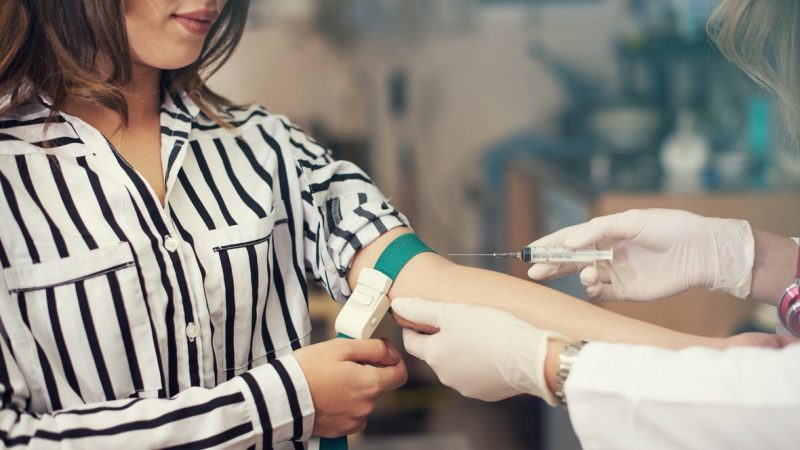
(Kaleigh Fasanella/ Allure) — In a perfect world, testing for STIs would be as simple as taking an online quiz. You’d plug in your answers, hit submit, and boom: Seconds later, you’d have your outcome. More importantly, the results would be accurate. Unfortunately, in the case of certain sexually transmitted infections — herpes included — securing your status isn’t straightforward. Without a herpes outbreak present (such as a cold sore), it’s extremely difficult to know whether or not you’re HSV-positive, and herpes testing is so flawed and misunderstood that doctors say it leads to unnecessary stress.
Picture this: You’ve started seeing a new partner and you two feel ready to have sex. You tell them you should both go get tested first and they happily agree. (Cheers to open communication.) From there, the two of you have blood tests and ask to be screened for STIs, including both types of herpes: herpes simplex virus type 1 (HSV-1), which most commonly causes oral herpes, and herpes simplex virus type 2 (HSV-2), which most commonly leads to genital herpes.
Neither of you has ever experienced symptoms, so when the test comes back and reveals that you’re herpes-positive, you’re stunned. You’re instantly hit with a minefield of emotions, including shame — no surprise, given the decades of stigma surrounding herpes and other STIs. But wait: Did you know that most people are positive for HSV-1, and that most are asymptomatic, meaning they have no symptoms?
If you have zero symptoms, getting tested won’t help you
The problem is that blood tests for herpes when no lesions or symptoms are present are often bullshit. I realize that’s a pretty strong word, but after speaking with doctors who have administered these tests, it’s become more and more apparent to me how misunderstood — and in some cases, just plain wrong — the results they give are. (…)